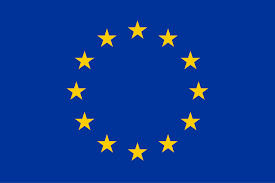Foreign Direct Investment (FDI) inflows in the UAE: key insights and trends
The United Arab Emirates (UAE) has established itself as a global leader in attracting Foreign Direct Investment (FDI), serving as a hub for business and commerce in the Middle East. Its strategic location, favorable tax policies, and a rapidly growing economy make it an attractive destination for investors from around the world. Over the years, FDI inflows have played a crucial role in shaping the UAE's economy, providing the necessary capital for infrastructure development, technological advancements, and economic diversification.
Why the UAE is attractive to foreign investors
The UAE's business-friendly environment is one of the key factors that contribute to its high FDI inflows. Here are several reasons why the UAE continues to attract foreign investment:
- Tax Advantages: The UAE offers tax-free income for individuals and low corporate tax rates. In addition, the government has introduced tax incentives such as tax exemptions for businesses operating in free zones, allowing 100% foreign ownership and reduced customs duties.
- Strategic Location: The UAE is strategically located at the crossroads of Europe, Asia, and Africa, providing easy access to global markets. Its world-class ports, airports, and logistics infrastructure make it a natural hub for trade and commerce.
- Stable Economy: The UAE has a stable economic environment, supported by a robust financial system and a government committed to economic diversification. The country has shifted from a reliance on oil revenues to a more diversified economy, which includes sectors such as finance, tourism, real estate, technology, and renewable energy.
- Free Zones and Business-Friendly Laws: The UAE boasts a variety of free zones that offer foreign investors full ownership of their businesses, easy access to global markets, and a range of tax benefits. These zones include the Dubai International Financial Centre (DIFC), Jebel Ali Free Zone (JAFZA), and Abu Dhabi Global Market (ADGM), among many others.
- Investment in Infrastructure and Innovation: The UAE has invested heavily in modern infrastructure and cutting-edge technology, making it an attractive destination for businesses in fintech, artificial intelligence (AI), and renewable energy. The UAE’s Vision 2021 and economic transformation plans are designed to position the country as a global leader in innovation and sustainability.
Key FDI statistics and trends
FDI inflows to the UAE have been significant, reflecting the country's strong position in the global economy. Some key figures and trends include:
- 2020 FDI Inflows: The UAE attracted $19.9 billion in FDI, making it the largest recipient of FDI in the Arab world (UNCTAD). This figure includes investments in sectors such as energy, finance, real estate, and technology.
- Growth in FDI: Despite global economic challenges, FDI inflows to the UAE have seen a steady increase in recent years, with $20.7 billion in 2021 and a projected $30.7 billion in 2023. This growth underscores the country’s resilience and attractiveness to foreign investors.
- Regional Leadership: The UAE continues to be the leader in FDI in the Middle East and North Africa (MENA) region. In 2022, it accounted for 47.1% of all FDI inflows in West Asia (UNCTAD).
- Top Sectors for FDI: The UAE’s FDI is well-diversified across several key sectors:
- Oil & Gas: Historically, the UAE’s oil and gas sector has attracted the largest share of foreign investment, though the country is actively working to reduce its dependence on fossil fuels.
- Technology: With the rise of smart cities, fintech, and artificial intelligence, the tech sector has seen significant FDI inflows. Companies like Amazon and Google have established significant operations in the UAE.
- Real Estate & Construction: Dubai’s booming real estate market continues to attract foreign investors, driven by large-scale development projects like Expo 2020 and megaprojects in both commercial and residential sectors.
- Finance & Banking: As a global financial hub, the UAE’s banking and finance sectors remain a primary focus of FDI, with many multinational banks operating in the country.
Impact of FDI on the UAE Economy
FDI inflows contribute significantly to the UAE's economic growth and development. Here are some of the key ways in which FDI impacts the country:
- Economic Diversification: FDI has helped the UAE reduce its reliance on oil by driving investments in non-oil sectors such as real estate, tourism, and finance. This diversification strategy is crucial for long-term sustainable growth.
- Job Creation: Foreign investments in various sectors have resulted in the creation of thousands of jobs in the UAE. Many expatriates are employed in key industries, contributing to the country’s labor force and overall economic activity.
- Technological Advancements: FDI has facilitated the introduction of new technologies, leading to greater productivity, efficiency, and innovation. The UAE’s growing focus on smart technologies and AI has been supported by foreign investments from global technology companies.
- Infrastructure Development: Much of the infrastructure in the UAE, including ports, airports, and real estate developments, has been funded by FDI. This has helped the UAE position itself as a major global business and trade hub.
Challenges and opportunities
While the UAE remains an attractive destination for foreign investment, challenges such as regional geopolitical tensions, economic fluctuations, and competition from other GCC countries can impact FDI inflows. However, the UAE’s pro-business reforms, investment-friendly laws, and focus on economic diversification continue to make it a competitive choice for global investors.
Conclusion
FDI inflows have played a pivotal role in shaping the UAE's economic landscape, contributing to its growth, diversification, and competitiveness on the global stage. With its attractive investment climate, robust infrastructure, and strategic initiatives to encourage innovation, the UAE is well-positioned to continue attracting foreign investments, ensuring sustained economic success in the years to come.


%402x.svg)
%402x.svg)


